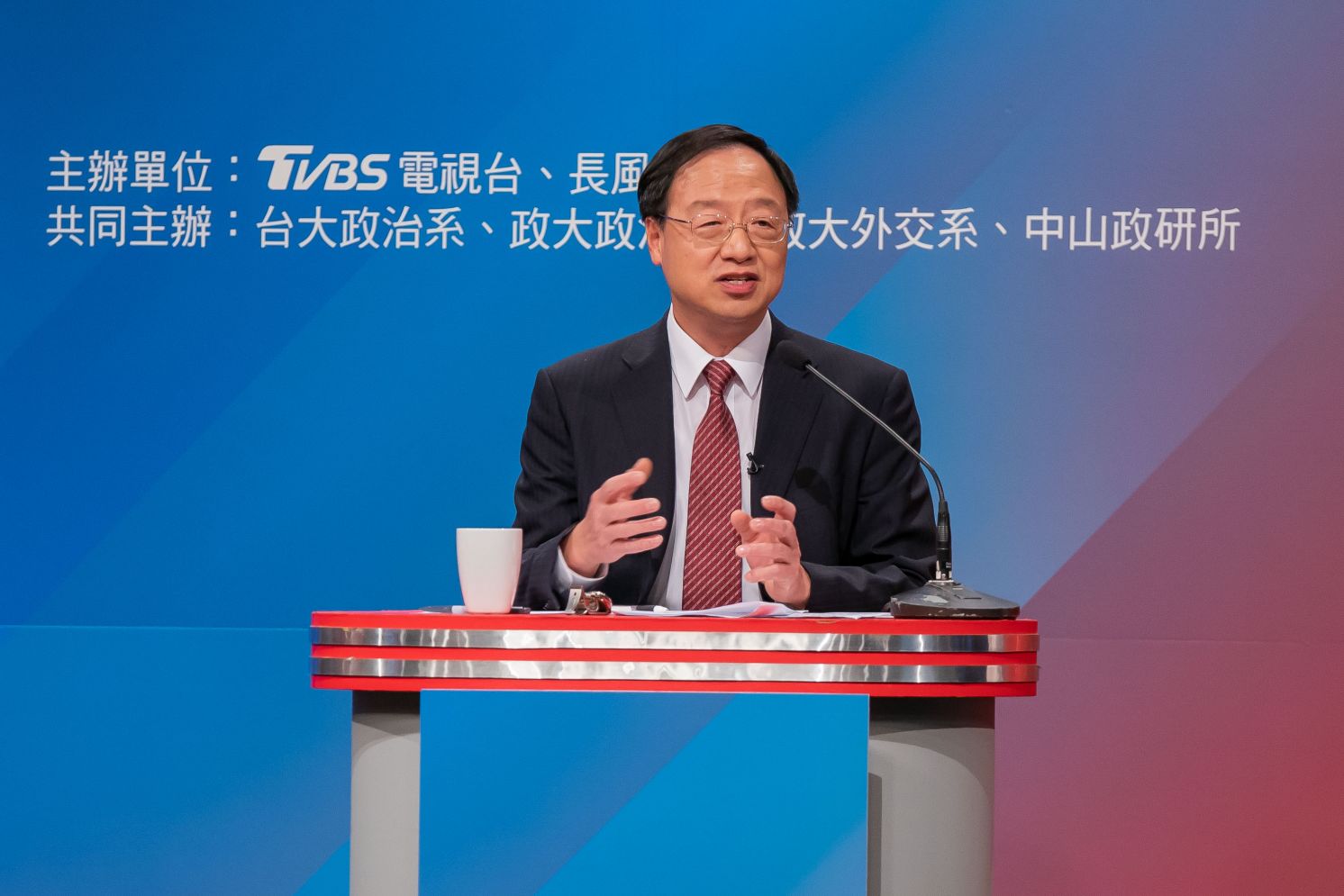
Former Premier: U.S.-China Relations Destined for War or Peace? Taiwan Can Play Key Role
United Daily News, January 23, 2021
TVBS and Fair Winds Foundation co-organized a televised public forum yesterday discussing the new state of affairs in international relations after the inauguration of President Joe Biden in the United States. The forum invited distinguished panelists Jiang Yi-huah, Su Chi, and Su Hung-dah, who took turns analyzing the outlook of Harvard University’s Professor Graham Allison on future U.S.-China relations and implications for Taiwan.
In the wake of a rising China, more pressure is being put on Taiwan to manage its relations with the United States and the Chinese mainland. Former Premier Jiang Yi-huah stated that Taiwan can play a key role in keeping the United States and China from war. This is because Taiwan knows China better than the United States, and Taiwan understands the American system better than the mainland. Therefore, Taiwan can be a trigger or a cure to U.S.-China problem depending on how the government in Taiwan handles the situation.
Jiang went on to draw from history that it seems inevitable for a rising power to confront militarily the dominant power, with only a few exceptions. From Taiwan’s perspective, no one would like to see a major armed conflict between the United States and China. If Taiwan were caught between or becomes the trigger or the battleground of such conflict, it would be disastrous for Taiwan, and no side would emerge the winner.
According to Jiang, the United States had encouraged, if not pushed, Taiwan to confront mainland China over the past few years. The circumstances appear to be changing now. The United States certainly would not suddenly reverse its policy to warm up with the mainland and cast Taiwan aside. However, the United States has to find ways to manage its conflicts of interest with China.
Jiang further stated that the new Biden administration’s position on cross-strait relations espouses a hope that people on both sides of the Taiwan Strait can peacefully resolve their differences. But the concept of “One China, with respective interpretations” established during the administration of President Lee Teng-hui has been smeared by the incumbent administration of President Tsai Ing-wen as equivalent to the so-called “One Country, Two Systems,” which has long been rejected by Taiwan since the era of President Chiang Ching-kuo. To renew cross-strait dialogue, a new formula will undoubtedly be needed.
Su Chi, former secretary-general of the National Security Council, stated that President Tsai, who supports the concept of “special state-to-state relations,” must feel tremendous pressure after Joe Biden took office as president of the United States. Over the past four years, President Tsai insisted on not having any dialogue with mainland China and smashed the “1992 Consensus” to pieces. Now, the wind has changed direction, and the threat against Taiwan independence is on the rise while the support for it is falling. To sail against the wind for another four years, the momentum for “Two-State Theory” may run its final course and then it is game over.
Su added that President Lee in the beginning did not want to engage in dialogue with the mainland because it would have involved the “One China” dispute. However, in the end both sides still manage to have a dialogue. After all, politics is the art of the possible.
Su went on to say that even though he does not support Taiwan independence, he does not blame it either. He can understand the sentiment among Taiwanese independence supporters wanting to be their own masters and stand up against bully. However, international politics does not value such sentiments, and international relations are different from personal relations. A state needs to engage with other states no matter if the state likes it or not, while other states may not come to your rescue simply because they like you. It is all based on the rational consideration of the national interest.
According to Su, Donald Trump’s popularity in Taiwan is due to the long-term diplomatic isolation of Taiwan in the international community. However, the wind has changed direction and may never change back. Even if Trump does make a comeback, China will only grow stronger. Since Taiwan’s leadership has decided to go against the wind, she needs to consider fundamental questions such as whether our people want to live or not, or our young people want to work or not, and so on.